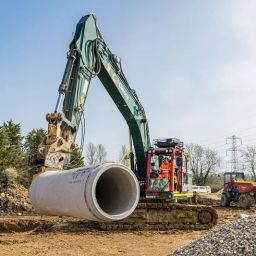
The Prime Minister has announced the launch of Extract, a cutting-edge AI tool developed in partnership with Google DeepMind, designed to slash planning delays and modernise the UK’s outdated, paper-based planning processes.
Speaking at London Tech Week, Sir Keir Starmer said the new AI assistant, Extract, will use Google DeepMind’s Gemini model to digitise decades-old, handwritten planning documents and maps in a matter of minutes. This innovation will be rolled out to all councils by spring 2026, with the aim of fully digitising the planning system by the end of that year.
Currently, England’s planning system processes around 350,000 applications annually, many of which still rely on manual validation and approval of paper documents, some running to hundreds of pages. Extract should change this by scanning and converting hundreds of files in seconds, freeing up thousands of hours for planning officers and expediting the approval process for home improvements and new developments.
Early trials in Hillingdon, Nuneaton & Bedworth, and Exeter councils have demonstrated Extract’s potential, with the AI digitising planning records – including maps – in just three minutes each, compared to the one to two hours typically required by manual methods. This represents a significant productivity boost, enabling the processing of up to 100 planning records per day.
The government sees Extract playing a key role in delivering its Plan for Change, which targets the construction of 1.5m homes over the next Parliamentary period.
“For too long, our outdated planning system has held back our country, slowing down the development of vital infrastructure and making it harder to get the homes we need built,” said Sir Keir, “With Extract, we’re harnessing the power of AI to help planning officers cut red tape, speed up decisions, and unlock the new homes for hard-working people as part of our Plan for Change. It’s a bold step forward in our mission to build 1.5m more homes and deliver a planning system that’s fit for the 21st century.”
The anticipated time and cost savings could reach £527m annually across the public sector.















